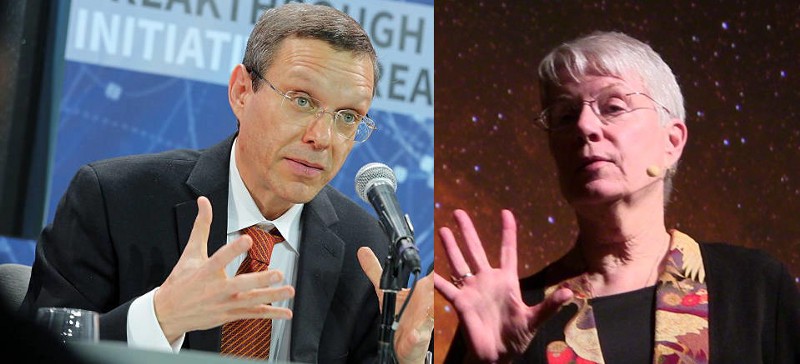The Search for Extraterrestrial Life Continues

Sign up for Big Think on Substack
The most surprising and impactful new stories delivered to your inbox every week, for free.
When Jill Tarter was growing up, she remembers walking along the beach with her father, gazing up at the night sky. Well before she would become a leader in the search for extraterrestrial life at the SETI Institute, she says she always assumed the stars up above her were someone else’s suns. “On some other beach, on some other planet there would be a small creature walking along with their parent and gazing at our sun in their night sky and wondering whether we were here just as I was assuming that they were there,” Tarter said in her recent Big Think interview.
Now director of SETI (an acronym that stands for the “Search for Extra-Terrestrial Intelligence”), Tarter admits she come upon her career by accident. As a graduate student who knew how to program an old computer, she was called upon to help with an engineering study at Stanford and NASA Ames that used radio telescopes to search for extraterrestrial intelligence. “I have this opportunity to try and answer a question that people have asked forever and how could you not? So yes, I remembered how to program that computer and I began working with this group and I got hooked and I’m still hooked,” says Tarter.
How close are we to figuring out if we’re alone in this universe? The jury’s still out. “Detection of an extraterrestrial signal indicating someone else could happen tomorrow. It could happen never,” says Tarter. But she still gets up every morning to work on finding an answer, because, as she says, the best plan is stick around long enough.
This interview with Jill Tarter is part of Big Think’s “Moments of Genius” series, which gives exclusive insight into the fascinating minds of some of the greatest math and science thinkers of our time. So far, the series has also featured Martin Cooper, inventor of the cell phone; David Ho, the AIDS researcher famous for pioneering combination therapy in treating HIV-infected patients; Arlie Petters, a mathematical physicist at Duke who’s out to prove that there’s a fifth dimension; Nathan Wolfe, who led a team that discovered the origins of malaria; Katie Salen, who started a game-based school in New York City; Leonard Kleinrock, who’s known as the father of the Internet; and Justin Rattner, who created what was once the world’s fastest computer. “Moments of Genius” is sponsored by Intel.
Sign up for Big Think on Substack
The most surprising and impactful new stories delivered to your inbox every week, for free.





